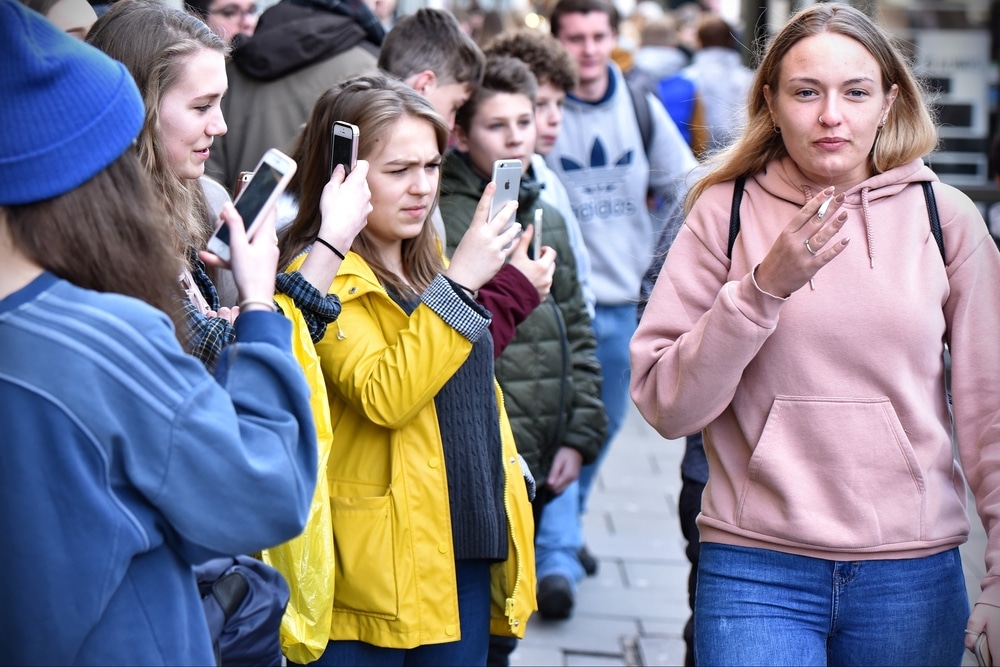
Cannabis Companies Are Targeting Teens On Social Media, Studies Claim
A new study using a modest sample pool found cannabis retail businesses are failing to comply with government restrictions on social media and are targeting youth.
The study, recently published in the Journal of Studies on Alcohol and Drugs and online on Jan. 19, found that many recreational cannabis companies market their products in ways that appeal to children and adolescents and “disregard government regulations.” A press release was issued the following day.
The study, A Content Analysis of Cannabis Company Adherence to Marketing Requirements in Four States, provided an analysis of social media posts by cannabis companies in a handful of jurisdictions.
A team of researchers evaluated publicly displayed posts on Facebook and Instagram from cannabis retail businesses in four states — Alaska, Colorado, Oregon and Washington — for a year, assessing whether businesses were complying with social media restrictions.
Researchers looked for content that violated restrictions, including brand-related promotions or discounts, overconsumption modeling, youth-oriented messaging, and health benefits. They have also addressed various state requirements.
They checked that companies were posting the necessary warnings, including stating that cannabis is restricted to those aged 21 and over, avoiding driving impairments and listing health risks.
But only 14 companies were evaluated in the study. Researchers evaluated 2,660 posts from these 14 companies, to be precise.
“I expected that cannabis companies would probably not fully comply with existing guidelines,” said lead author Megan Moreno, MD, MSEed., MPH, department head of general pediatrics and adolescent medicine at the University of Wisconsin-Madison. “Some cannabis companies have created dozens of social media posts daily and there is no current system to monitor or enforce these regulations. However, it was surprising to see how the existence of guidelines made a difference between states.”
What the results show
Discounts or promotions were found in about 35 percent of the posts, the researchers said. “Overconsumption” was found in 12 percent of all posts. Content containing warnings “although required,” researchers said, is evident in less than half of all posts.
The researchers found that the state of Washington, for example, prohibits the display of branded products such as T-shirts with a company logo. However, they found that about 1 percent of social media posts from Washington state cannabis companies ignored this restriction.
The research team acknowledged that “in states without this regulation, these types of posts appeared five to ten times more often. While regulation didn’t guarantee compliance, it appeared to be affecting how often companies shared content, which may or may not be restricted.”
“As a pediatrician, I know that marketing and advertising have a powerful impact on children and young people,” says Moreno. “Previous studies have shown how alcohol and tobacco company marketing is linked to youth use of these products.”
She continued, “Parents should talk to their kids about how cannabis companies are trying to influence them using youth-friendly approaches like using cartoon characters and memes.”
The study was picked up by FOX23 News and ABC10 in New York at the time of writing.
Both Facebook and Instagram fall under the Meta umbrella, and we can’t help but wonder if studies like this impact the Meta policy. “I don’t think the results of this study have any impact on Meta’s censorship of cannabis brands because they justify their actions on the grounds that cannabis is federally illegal in the US and therefore not legal anywhere in the world, even in countries where it is.” is legal nationwide. like Canada,” ADCANN CEO Cody Hicks told the High Times. ADCANN offers cannabis marketing tools e.g. B. How to recover an Instagram account if it was disabled for cannabis.
we have questions
When legal cannabis companies target youth, it doesn’t seem to work. A separate, broad-based study published in JAMA Pediatrics — using data from national and state Youth Risk Behavior Surveys from 1993 to 2017 conducted by researchers at Montana State University, the University of Oregon, the University of Colorado-Denver and San Diego State University – states this had legalized cannabis use for medical purposes and adults and the likelihood of use by teenagers (over the past 30 days).
The study analyzed data from 27 states and the District of Columbia, as well as seven states where adult use of cannabis has been legal for a 25-year period. Adult cannabis laws were associated with an 8 percent reduction in the likelihood of teens trying cannabis and a 9 percent reduction in the likelihood of frequent cannabis use, the study found. They found that medical cannabis laws had no significant impact on teenage cannabis use.
Normally headlines about children and cannabis appear every year around Halloween. Preconceptions that focus on the harm (or benefit) of cannabis abound in both clinical and non-clinical research related to cannabis.

Post a comment: